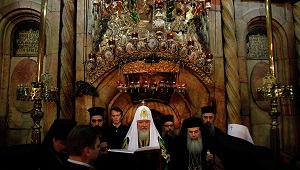Mohamed Salmawy – the playwright, former colleague and close friend of Naguib Mahfouz – was one of the few people to tend to Mahfouz during his last weeks in the hospital. Many of Mahfouz’s other friends, whom he met regularly every week, felt excluded at the time and complained bitterly.
“The Last Station is a sensitively written book that shares with those friends the memories of his last days in the hospital, and for those of us who did not know him closely, his generosity and kindness, his great sense of humor and, above all, his humility.
During his last Saturday visit, Salmawy had as usual tape recorded the latest of Mahfouz’s dream stories, which he was preparing for publication. The attack on Mahfouz’s life in 1994 had disabled his writing arm.
In July 2006, here we stand with Salmawy, waiting at first in hope, and then after Mahfouz’s second fall, in growing anxiety and despair, watching the great personality sink farther from us, closer towards death. He is apparently unconscious, totally unaware of his surroundings as a copy of his newly-published book is held in front of his face.
As we share the daily vigil with Atiyatallah – Naguib’s wife – we shudder at the painful medical intervention he is made to undergo. At first she refuses to allow further intrusion on his failing body; he had already been heard to say “I want to go.
Her dignified devotion and love becomes apparent in Salmawy’s simple words: “She came everyday and sat there quietly from morning to night.
However, the seemingly overzealous doctors, determined to keep this great son of Egypt alive, further intrude upon his dying body, obviously to no avail. Salmawy’s conveys his sense of loss as the inevitable approaches: “Give me one more year, one more month with him.
As Salmawy gazes upon him soon after his death, he becomes overcome with grief and recalls this poem of Longfellow’s: “.time has laid his hand, Upon my heart, gently, not smiting it, But as a harper lays his open palm, Upon his harp, to deaden its vibrations.
During the ritual washing, Salmawy is horrified at the face of death upon this body, and discourages Mahfouz’s daughter Faten from seeing it, telling her to remember her father laughing.
Egypt’s famous author was accorded the highest honor of a full military burial, but at the request of his wife, he was first prayed over at El Hussein Mosque, close to where he was born and spent much of his life gathering material for his stories.
At the burial place on the desert road to Fayoum, a stranger, an admirer of Mahfouz, goes down into the tomb with the body as neither Madame Atiyatallah nor any of his friends could bear to do.
This book is not just an account of Naguib Mahfouz’s death. Salmawy presents us with Naguib’s dream stories throughout, and many reminiscences of happy times spent with a great man. Every fan of Mahfouz will want to read this.
The Last Station: Naguib Mahfouz Looking Back
By Mohamed Salmawy
Translated by Andy Smart and Nadia Fouda-Smart, AUC Press
